Business Africa
Eswatini has added two more solar photovoltaic plants to its sustainable energy portfolio, a statement from the Natural resources and energy ministry said.
The Lavusima solar PV plant, which is near completion will guarantee a capacity of 10 megawatts at the point of connection.
With a cost of nearly $19 million, the project is expected to generate about 13.75 megawatts of electricity to the national grid.
The plants will be connected to the existing Eswatini Electricity Company transmission system.
The Lavusima project is also the country’s first utility-scale solar PV plant.
The kingdom is on the move to roll out more sustainable energy projects, in its quest to become less dependent on neighbors like South Africa and Mozambique to provide its energy needs.
According to the statement, the project has led to the creation of some 170 jobs.
Future maintenance of the solar panels is anticipated to add more job openings.
Natural Resources and Energy Minister Peter Bhembe tells Business Africa’s Ignatius Annor that: ''We have a national goal that says we need to have a 100% connectivity in the country. That, you can only achieve by improving your generation capacity.’’
Inflation hikes prices in Burundi
Sugar, beer and oil. These are some of the commodities whose prices have been skyrocketing in recent, prompting concern among the public in this central African country.
Some products have become scarce prompting long queues at stores while others have disappeared from shop shelves.
Local producers in the country are struggling, while importers are set back by the dire state of the economy.
"The question of sugar has become complicated. This small quantity used to be sold for 100 Burundian francs but now it is 200 Burundian Franc. This is insignificant in tea. We try to replace it with honey or milk, but it is expensive’’, said Nestor, a resident of southern Bujumbura.
Families worry that the cost of living could rise uncontrollably.
"At a certain point, the population will no longer be able to buy these basic necessities’’, said Phénias Nigaba, a resident of the north of Bujumbura.
This Economist accuses retailers of hoarding essential goods with a view to profiteer from artificial shortages. Faustin Ndikumana says importers should be incentivized to bring in scarce commodities.
"Speculation and corruption, which is widespread in the commercial sector, must be eliminated. The professionals of the trade must exercise their professions and I believe that the citizens will find their account there", Faustin Ndikumana said.
Burundu's $3 billion is one of the smallest in the world and has been hit by foreign currency shortages which have affected imports and forced the Burundian Franc to lose value.
The representative of the NGO, ''Words and Actions for Changing Minds'' (PARCEM) also suggests that the government find ways and means to supply the local market with foreign currency.
Officially, one dollar is equivalent to about 2,000 Burundian Franc, while on the black market, it goes up to about 2,800 Fbu.
What’s next for ECO?
The Etats Généraux de l'Eco ( the General state of the ECO) held in Lomé, Togo, in its initial stages has produced several proposals.
The participants made their copies on a West African monetary reform and the measures to be taken to put the ECO into force, a guarantee of the sovereignty of states.
"We are talking about the ECOWAS project which restores full sovereignty to States and which serves as an instrument for structural transformation for endogenous and self-centered development. And this currency must serve this project’’, said economist Demba Moussa Dembélé.
The roadmap for the creation of the West African ECO currency sets as a major principle, the indispensable transformation of African economies.
In concrete terms, the ECO must promote endogenous development.
No more dependence but rather a monetary policy that favors the production of money when growth is forecast. This would favor access to credit, particularly for businesses, and thus potentially accelerate development in the region.
Kako Nubukpo is the President of the scientific committee of the ECO conference.
"We really want a people's currency, and this is really something that seems important to us because we think that one of the weaknesses of the CFA Franc is that it is a currency of the elites and the other principle is that of parity which, in our opinion, should be illustrated by the centralization of foreign exchange reserves’’, Nubukpo told our Togolese correspondent Serge Koffi.
Another proposed reform within the roadmap to be approved by Heads of states is to abandon the French Treasury guarantee granted to West African Economic and Monetary Union member states, Koffi reports. He added that ''the roadmap decided in Lomé (in this building behind me) will be submitted to the heads of state for approval.''




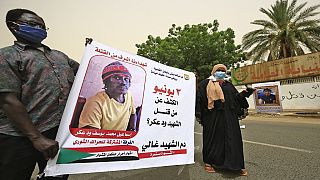
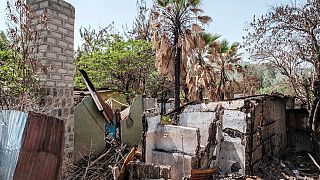
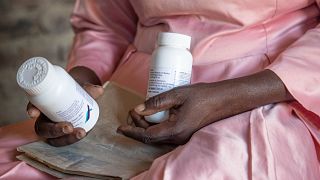
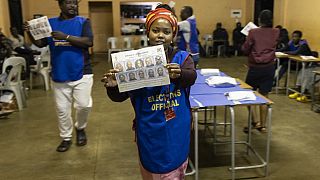
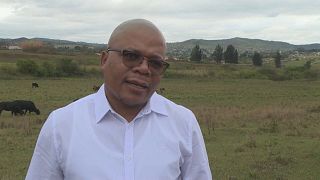



11:17
Bridging the legal gap in Africa’s digital boom {Business Africa}
01:54
"Great economic potential in Africa": five African leaders have lunch with Trump
11:19
Cyber Africa Forum highlights Benin's bold digital resilience [Business Africa]
01:52
In Goma, solar power brings light and hope in Ndosho neighbourhood
Go to video
Morocco: United Kingdom withdraws from renewable energy project
Go to video
World Bank grants South Africa $1.5B for infrastructure, green energy